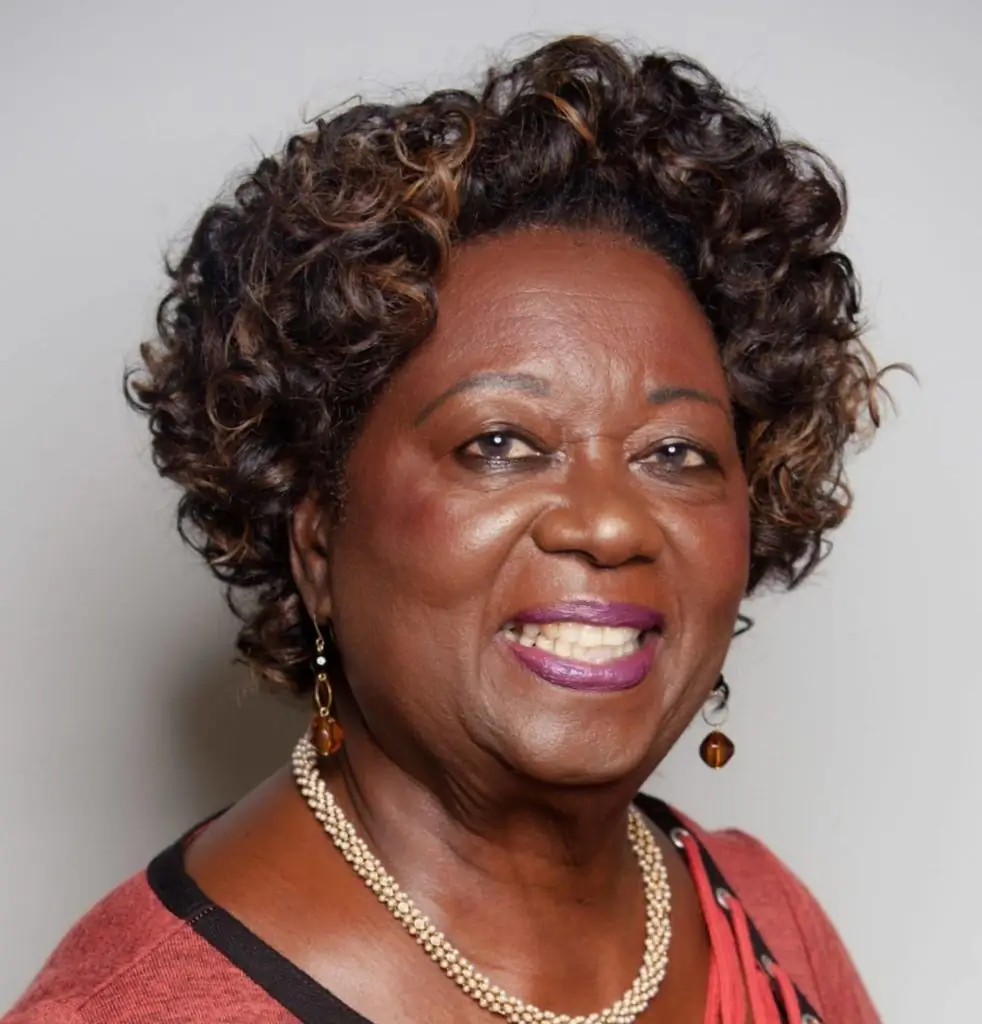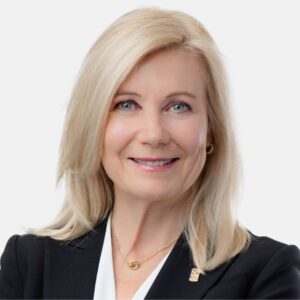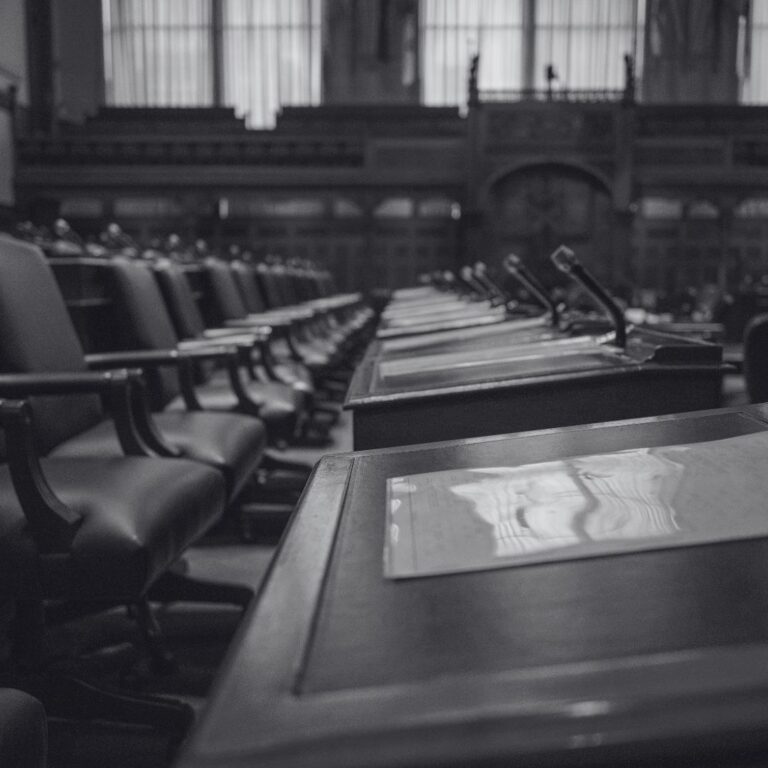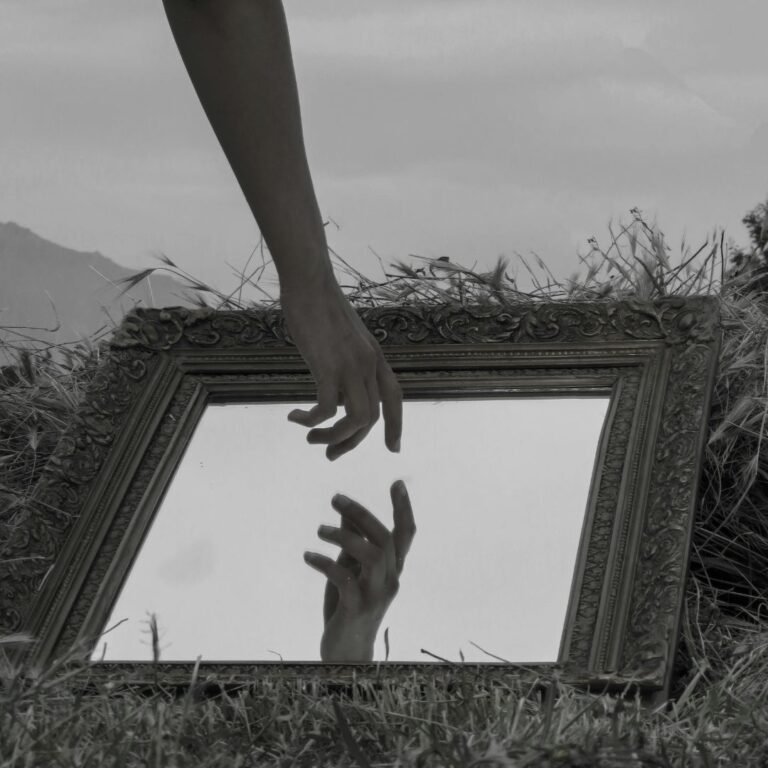Jean Augustine – The first Black woman elected to the House of Commons
Jean Augustine came to Canada from Grenada as a teenage domestic worker and went on to become not just the first Black woman elected to the House of Commons and a cabinet minister. Dr. Augustine has worked tirelessly to improve her community – as a teacher, a mother, a board member, a social justice and equality activist and now as the President of the Jean Augustine Centre for Young Women’s Empowerment, and she joins Jen and Catherine to talk about the influence of the grandmother who raised her, the power of education and the things that give her hope for the future.

How childhood influenced her later path in life
Catherine Clark You’ve had such an extraordinary life and an extraordinary career, Dr. Augustine, and it started in Grenada, you were raised by a grandmother, you lost your father early. Can you talk to us about how your childhood influenced your later path in life?
Jean Augustine I think it is important to recognize and to realize that what happens in those early years are so important for the development of the individual. And this is the courage and the resilience and everything that’s built into those early years. That helps one to get to the full potential as it were, I grew up in a small place Happy Hills in George’s Grenada. I was surrounded by family, lots of children, lots of young people, lots of matrix, I call them very, there were lots of men around but I remember the women because they were the matriarch of the family, I grew up with the notion, the African notion, it takes a village to raise a child. And very early I learnt all of the things that we hear, you know, the everything I know, I don’t think kindergarten, everything I, you know, play fair share with others. You know, all of those things I learned very early. And I took that with me. And the advice I got and the support, and the building of my self esteem as a girl. Because there was firm belief by my grandmother, that there was nothing that girls couldn’t do. She herself was not educated in terms of what we know as academia with degrees or with high school graduation. But she recognized the importance of education. And so I was given every opportunity as the girl to go to school to develop. And to, to have and to remember the words that she said when before Obama said it? She said yes, you can. As a girl, yes, you can. There is nothing you cannot do. But remember that education has to be the starting point and the basis for wherever you’re gonna go.
Decision to immigrate to Canada
Jennifer Stewart Why did you decide to immigrate to Canada? And what do you remember most about those early days in this country?
Jean Augustine It’s important to look back on the situation of the Caribbean islands at the time, there was very little in terms of post secondary education. If you wanted anything post secondary, you had to leave the island. And so the families were putting together envelopes to assist their sons to go away. And the girls remained behind, there were four or five avenues open to us. We could be teachers, we could be nurses, we could work in department stores. We could get married, stay home, have children and that was really the expectation around those early years. But I knew, my grandmother knew that I had to have post secondary education. So I had to go away. I was writing to schools here in Canada, and in the U.S. And of course, I was getting admission, because I had Oxford and Cambridge overseas school certificate, which was a graduating thing for high school in Grenada at the time, but I could not meet the criteria, and that is having enough funds to pay for your tuition, your living and accommodation, your airfare, etc. And so I was there biding my time. And then this program came up with an agreement with the Caribbean, some of the Caribbean islands, and Canada, Canada was looking for household health, for women who are now coming back into the workplace, the late 1950s, into the 60s, and therefore they needed household help. The Caribbean had all these young people who had skills and who had abilities. And so a match was put together, called the Canada-Caribbean domestic scheme. And so I signed up for that scheme, came to Canada worked for one year in the home of a Canadian family, with the criteria that I would work for one year, as a domestic in the home of Canadian family, get landed immigrant status, and could remain in Canada, and that was Canada’s contribution to the Caribbean at the time, to assist with the unemployment of young people.
Becoming an activist
Catherine Clark Can you talk to us about that journey and how it influenced your later community activism?
Jean Augustine Well, my community activism started from the time I landed in Canada, just trying to find some of the necessities as it were, as a black woman, trying to find the right face powder, trying to find the right color of nylons, trying to find whether it was a hairdresser. Because in those days, it’s not as it is today. We had no Charter of Rights and Freedom, nothing that says you can discriminate on the basis of whatever. That didn’t come until we amended our constitution in 1982. We’re talking about 1966, we had no rules around housing. I was told it’s for rent but not for you. We had no landlord and tenant act, I had no way to appeal, because we did not at the time have a human rights commission as we know it today, where you can ask for some intervention. We had no police community relations, we had no school board, talking to parents or bringing parents into the building, actually, the gates of the school, were locked after school hours, and classrooms and the school itself, we had no community. The school was not seen as a community resource at the time. So things were so different. There were no role models and mentors around but you can look in the system and see people who look like me, people who, whose experiences were very much like mine in any high place, or in any place that you can say I want to get there myself. And so I started with a whole lot of people who, before me, had been part of the advocacy and being part of the activism. And so I became an activist.
Jennifer Stewart So how can we collectively help raise strong girls?
Jean Augustine We have to be models to girls. My father died when I was nine months old. I didn’t know my father. My grandmother stepped into, and she was a strong black woman, she was an uneducated woman.She was educated in the school of hard knocks. And she recognized the importance of women in families and the role of women in the world. I grew up with this kind of international scope, thinking about other people in other parts of the world, knowing myself as of African descent. And knowing also, that it’s important to make my contribution, and to do what one can to move the agenda forward. Because it is important that young girls know all of this.
I have a Center for Young Women’s Empowerment. We empower young women, we give them the soft skills, we give them the opportunity to be resilient, the opportunity to strengthen, and to be courageous, and to speak up and to speak out about issues. And at the same time, we do things like the STEM programs, technology programs, at the core cooking and sewing and developing entrepreneur knowledge and intelligence, talking about banking systems, and talking about issues that would enable young women to be formed and to develop their potential, showing them that the opportunities that are there, showing them that there is nothing that’s non traditional that they can get into whatever field of endeavor, and given them the opportunity and the affirmation to know that they can take any track as a young girl.
Being the first black woman elected to the House of Commons
Catherine Clark I’m curious to know whether being the first black woman in the House of Commons was an empowering experience, or whether it was a lonely experience, or was it both? Was it more than that? Can you talk to us a little bit about it?
Jean Augustine It was more than that. It was, oh my God, it was an OH MY GOSH place. It was an awesome experience. At the same time, I think we have to keep in mind that by 1993, I allowed myself to be talked into running because most women in those days had to be tucked into running. When I had my first daughter there was one woman in the Parliament of Canada. We just came through an election. We now have 102 women in the House of Commons. So we’ve come a long way. When I got there I was the first black woman even running.
I had the fire in my belly to get there and do some things. I didn’t wait for to be told, I started organizing my colleagues very early on, to discuss things like microcredit, to look at Population and Development, the education of the girls, the issue of young people caught in situation of violence is part of their lives, addictions, all of those things we used to. I used to call breakfast meetings regularly and find colleagues who have an interest, and we would deal with those issues.
For me, it was an opportunity to find people that will have light minds. And it was an opportunity to be a role model. I was always very conscious as a parliamentarian that the entire black community in Canada saw me there as representing them. I had learned very early, not to take slights, or to do whatever if someone was racist, or they had racist notions or they were doing whatever it was their problem, not mine. And so I went on the positive and I ignored those people who for whatever reason, had problems that they needed to grapple with.
Jennifer Stewart Dr. Augustine, we have seen a tremendous amount of social change in the past two to three years with the Me Too movement and Black Lives Matter. What gives you hope right now?
Jean Augustine It’s the fact that we see so many young people who have cut the baton, from those of us who have struggled, and who are making progress. I feel so great when I’m asked to speak and there’s a whole room full of teachers, you see all these black faces, all these African Canadians all across the country, in the last election, putting themselves forward and running all of the political parties
The discussion that’s taking place right now, about the past wrongs in Canadian society and what we all need to do, gives me hope. And I think that the pandemic gave us that opportunity, the year or two to reflect. We saw with the essential workers or we saw what happened to women and women’s position. We saw the issue of the social justice questions that reverberated all around the world because of George Floyd’s killing, the Me Too movement brought forth the issue about women no longer accepting the nonsense in the workplace. So there was just so much Black Lives Matter, and the young people in that movement, all of those things, give me hope that we are when we get on the other side of all of these conversations around diversity and inclusion, that we will come out a more diverse and more inclusive, a fear and a better society.









